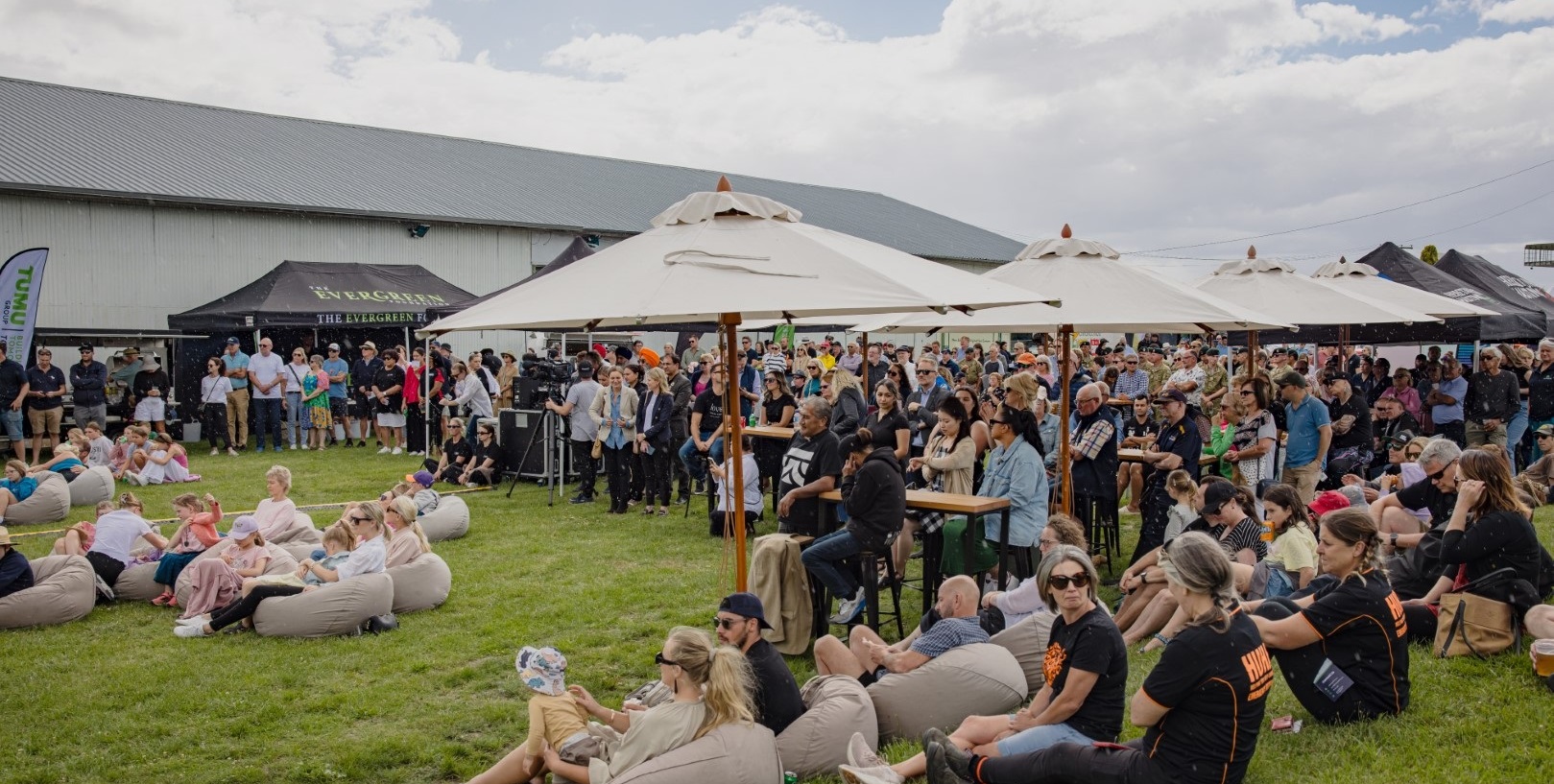Volunteer Appreciation Day held in Hastings that was co-funded by local funders
One year on from Cyclone Gabrielle has given community funding leaders time to positively reflect on the critical collaborations the crisis helped strengthen.
United in Gabrielle’s aftermath, Hawke’s Bay as a community has rallied together and so too have the region’s community funders.
Disseminating funding swiftly to where it was needed most has been an ongoing collective effort, bolstered by funding organisations working more effectively together.
Hawke’s Bay Foundation responded alongside organisations the likes of Evergreen Foundation, Eastern and Central Community Trust (ECCT) and the Rural Support Trust ensuring efficient passage of donor funds.
Hawke’s Bay Foundation played a critical role, generating and distributing public donations itself of over $3M for cyclone relief and recovery. Distributions Officer Vanessa Bousfield says it’s been heartening to observe the teamwork.
“The cyclone taught us the power of the collective and by our charitable organisations joining forces we have all seen what can be better achieved. That can only serve us well for the future.”
ECCT’s Nadia Hardie agrees.
“All too often funders work in silos. By working collectively through an already established channel of the HB Funders Forum, the funders and other government agencies were able to quickly provide essential support (relief funding in the first instance, and recovery funds later on), by sharing information, visiting affected communities together, listening and then figuring out ways of collectively funding the need.
“Forum meetings continue once per month with funders and agency departments along with District Councils still working together collectively and there is hope that this collaboration, which better serves our communities, continues going forward and not just during times of crisis.”
East Coast Rural Support Trust has been providing support to rural schools, fencing materials, speakers such as Dr Lucy Hone and Lance Burdett, community gatherings, and individual counselling along with other initiatives.
Area Coordinator Jonathan Bell says linking in with other funders like Hawke’s Bay Foundation enabled funds to go further and resulted in greater reach to our rural communities.
“Collaborating ensured that the voices of the communities were listened to, we were able to discuss and tailor responses depending on each organisation’s funding criteria which enabled a flexible and speedy response to our communities.
“We have people reaching out to us even now for help twelve months post cyclone. We expect the “tail” to last several years. Farms and orchards may take up to ten years to return to what they were pre cyclone, and the financial costs will take some time to recover, perhaps up to fifteen years.”
Evergreen Foundation has been instrumental in helping Hawke’s Bay’s hard-hit horticultural and agricultural producers get back on their feet with various projects such as Hort Support Days, fencing support and community events . Their ‘Bin Clean Up’ saw just under 30,000 scattered and silt filled bins collected, cleaned, repaired and delivered back to growers, saving an estimated $3 million of costs to replace.
Trustee Brendan O’Sullivan says partnering with Hawke’s Bay Foundation has been extremely valuable.
“As a donation-based charitable organisation we are always looking to make each dollar work as hard as possible. The opportunity to collaborate with Hawke’s Bay Foundation has meant that we have been able to add so much more to the community than what we could have done by ourselves.
“During a wide-spread crises often larger organisations simply do not have the capacity and agility to cover everything. Having charitable organisations in our region that have strong links to the community like the Hawke’s Bay Foundation, we have managed to create a very responsive nimble effort to help fill gaps. If something happened in the future we have a much clearer role and network to help.
“We can all reflect on what can be done better but I hope it’s reassuring for our communities and region to know that there is a very effective group of on the ground organisations who have established strong working relationships to deliver a lot more than what we could have done separately.”
